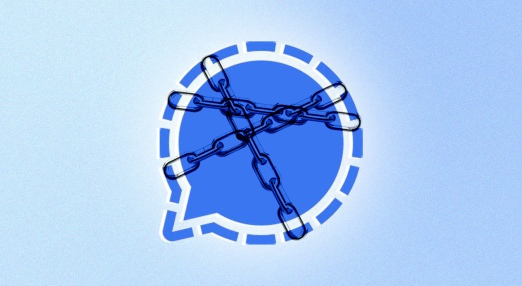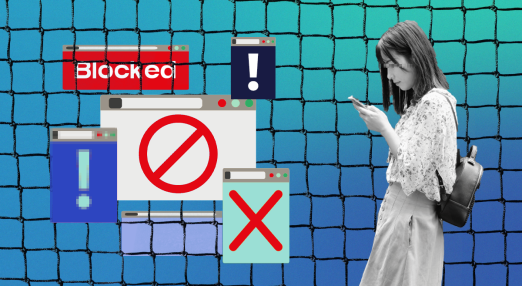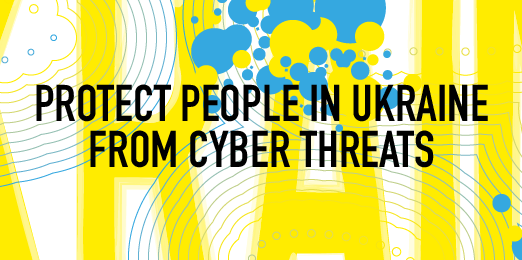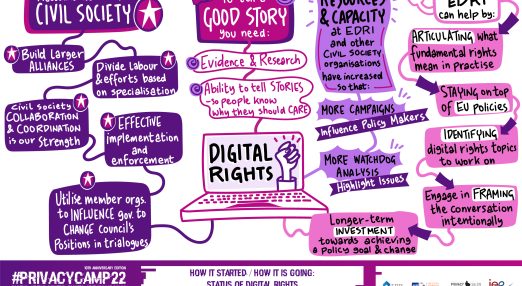Belgium wants to ban Signal – a harbinger of European policy to come
Last week, the Belgian government launched a proposal that would ban Signal. What's going on?
Filter resources
-

Belgium wants to ban Signal – a harbinger of European policy to come
Last week, the Belgian government launched a proposal that would ban Signal. What's going on?
Read more
-

Digital rights organisations call to dismiss the media exemption in the European Media Freedom Act
EDRi and our members Homo Digitalis, Access Now, EFN, Vrijschrift, and Državljan D are calling on the European Commissioners Vestager, Jourová and Breton to dismiss the ‘media exemption’ in the EMFA.
Read more
-

Twitter Has a New Owner. Here’s What He Should Do
Elon Musk’s purchase of Twitter highlights the risks to human rights and personal safety when any single person has complete control over policies affecting almost 400 million users. And in this case, that person has repeatedly demonstrated that they do not understand the realities of platform policy at scale.
Read more
-

What happens next with upload filters in the EU after the CJEU copyright ruling
On 26 April, the Court of Justice of the European Union delivered its judgement on one of the most relevant cases for freedom of expression in recent years: Case C-401/19- Poland v Parliament and Council. The case was brought by Poland after the adoption of the controversial copyright Directive, and specifically because of its Article 17 that, according to EDRi and other civil society organisations, academics and politicians, could lead to mandatory use of upload filters on most online platforms.
Read more
-

Copyright: European Court of Justice strictly limits the use of upload filters
“Today’s ruling sets an important precedent for the protection of freedom of expression online. Nevertheless, it does not go far enough. The European Court of Justice does not completely rule out the use of upload filters to enforce copyright on online platforms. At least, however, the court confirms what civil society has been emphasizing for years: upload filters are unable to reliably distinguish between copyright infringements and legitimate forms of free expression such as parodies or quotations. It is therefore right that the highest court limits the use of upload filters under Article 17 of the EU Copyright Directive to uploads that constitute manifest infringements, such as uploads of entire movies.”
Read more
-

The Domino Effect of Internet Blocking in Romania
The Council of the European Union’s decision, which came out on 1 March, to block access to the media outlets Russia Today (RT) and Sputnik, looking to stop the spread of disinformation, set forth a domino effect in Romania for internet blocking.
Read more
-

EDRi statement: the fundamental rights consequences of the EU media ban
European Digital Rights (EDRi) is appalled by the illegal and atrocious invasion of Ukraine by Russia’s totalitarian regime. We stand with the people of Ukraine who are forced to live in fear and flee from their homes while enduring war crimes and other large-scale human rights violations, including cyberattacks. Democratic societies that respect the rule of law should stand in solidarity with the deep suffering of people in Ukraine on many levels.
Read more
-

Propaganda cannot be silenced with censorship, freedom of expression can
By order of all governments in the European Union, internet providers and platforms are blocking access to Russian state media. However, European governments would do better to stimulate the independent media in both Russia and Ukraine.
Read more
-

The Online Safety Bill: punishing victims
The government has today announced two new regressive and unworkable additions to the Online Safety Bill. With each new announcement, the Bill demonstrates itself to make the online world less safe for the people it claims to protect, particularly LGBTQ+, survivors of abuse and ethnic minorities.
Read more
-

Cyberattacks on Ukraine’s infrastructure and civil society violate human rights
Alongside Russia’s eight years of armed aggression against Ukraine and its ongoing threats of large-scale invasion, cyberattacks on Ukraine’s critical infrastructure and civilian services are putting people’s human rights at risk. We call on the international community to provide the necessary support to Ukraine and its human rights defenders to ensure people are protected from cyber threats.
Read more
-

French deputies must reject online censorship without a judge in one hour
On 9 February 2022, the Law Commission of the French National Assembly discussed the bill concerning the "dissemination of terrorist content online", transposing the European regulation on terrorist content online into French law. European Digital Rights (EDRi) and EDRi’s members La Quadrature du Net and Wikimedia France sent the following letter to the members of this Commission to call for the rejection of the bill prior to the discussion.
Read more
-

How it started, how it’s going: Halfway through the current European Commission’s legislative term
In January 2022, EDRi held a panel at its annual flagship event Privacy Camp to discuss the EU’s current legislative term and what to expect by the next EU elections in terms of digital rights.
Read more
